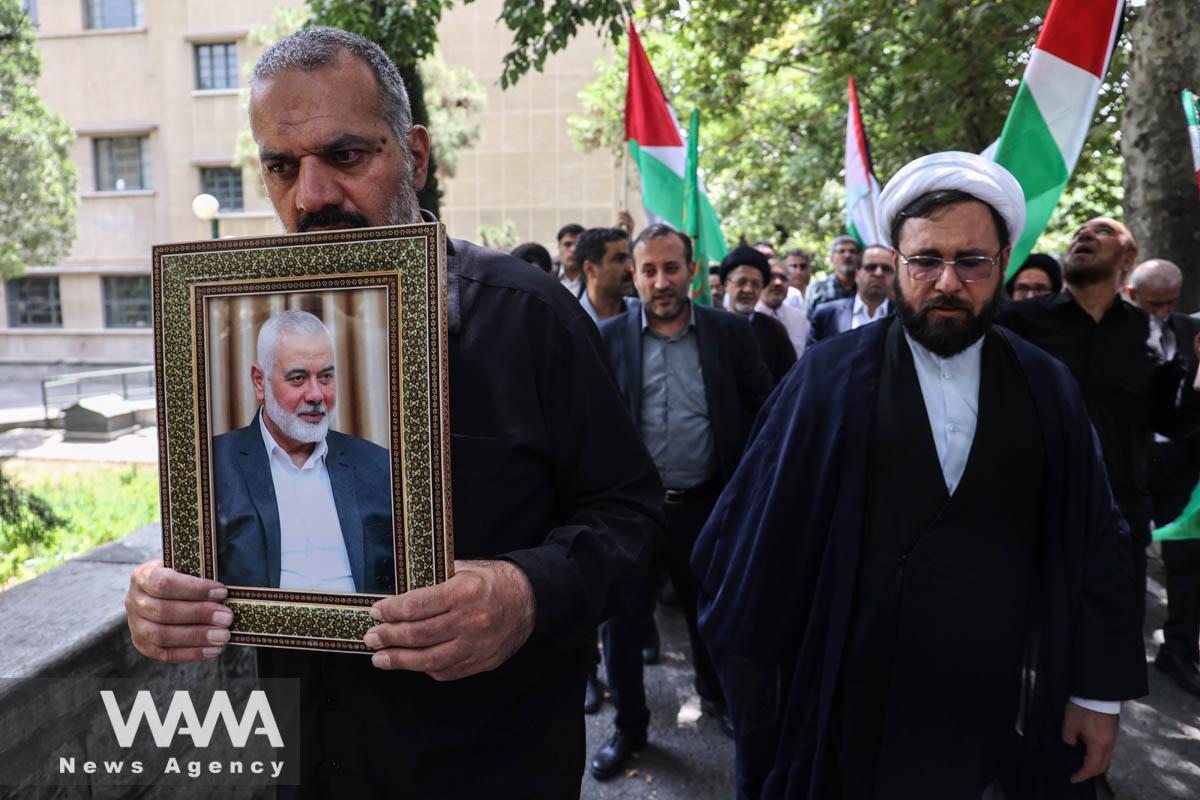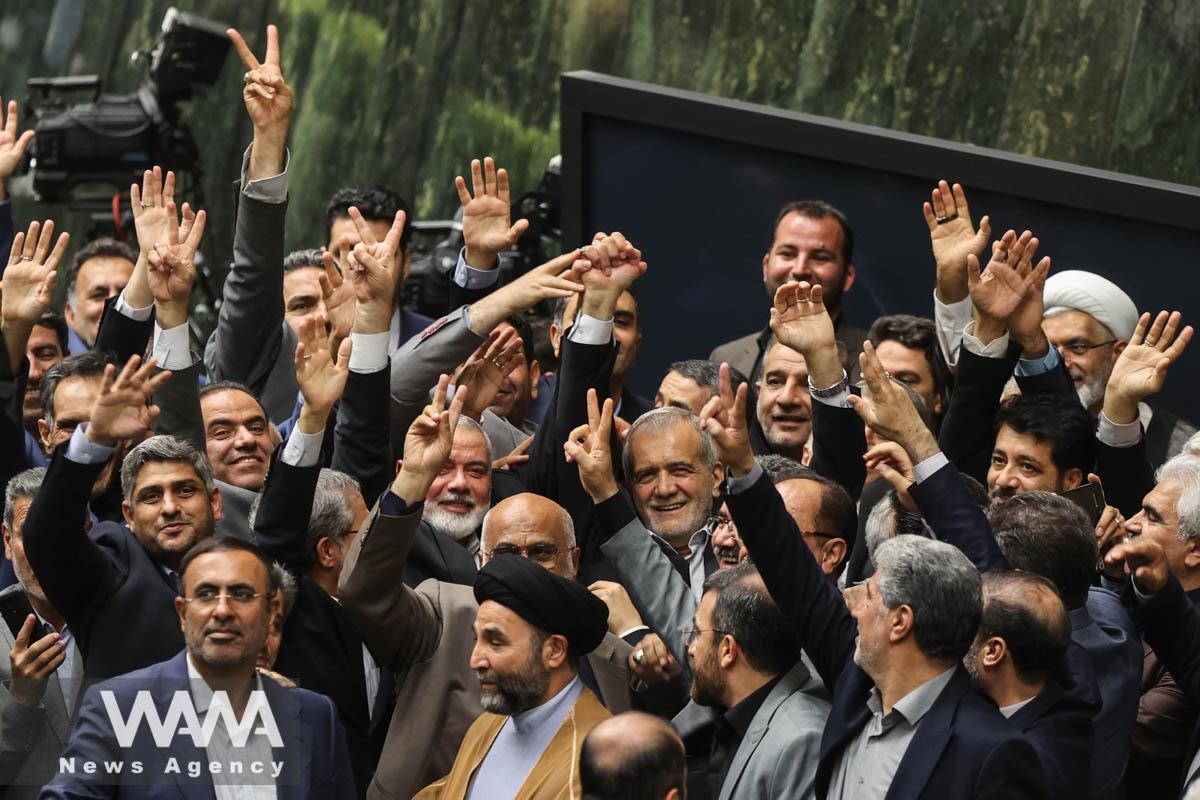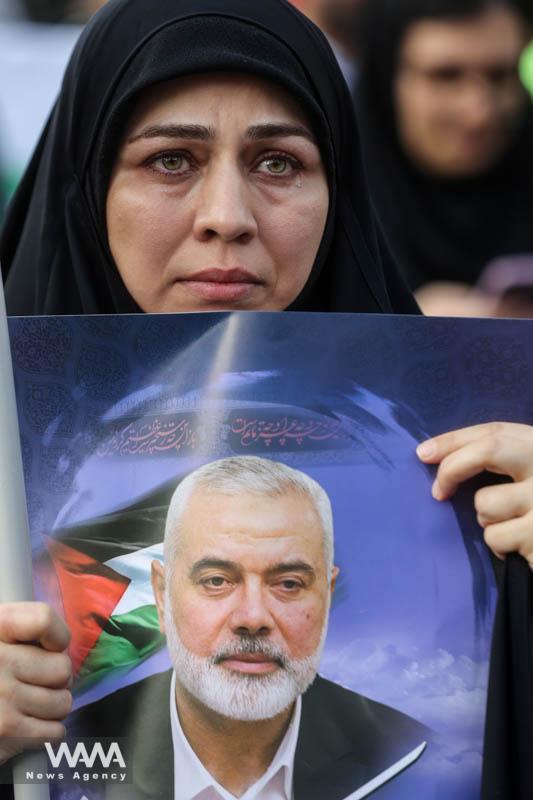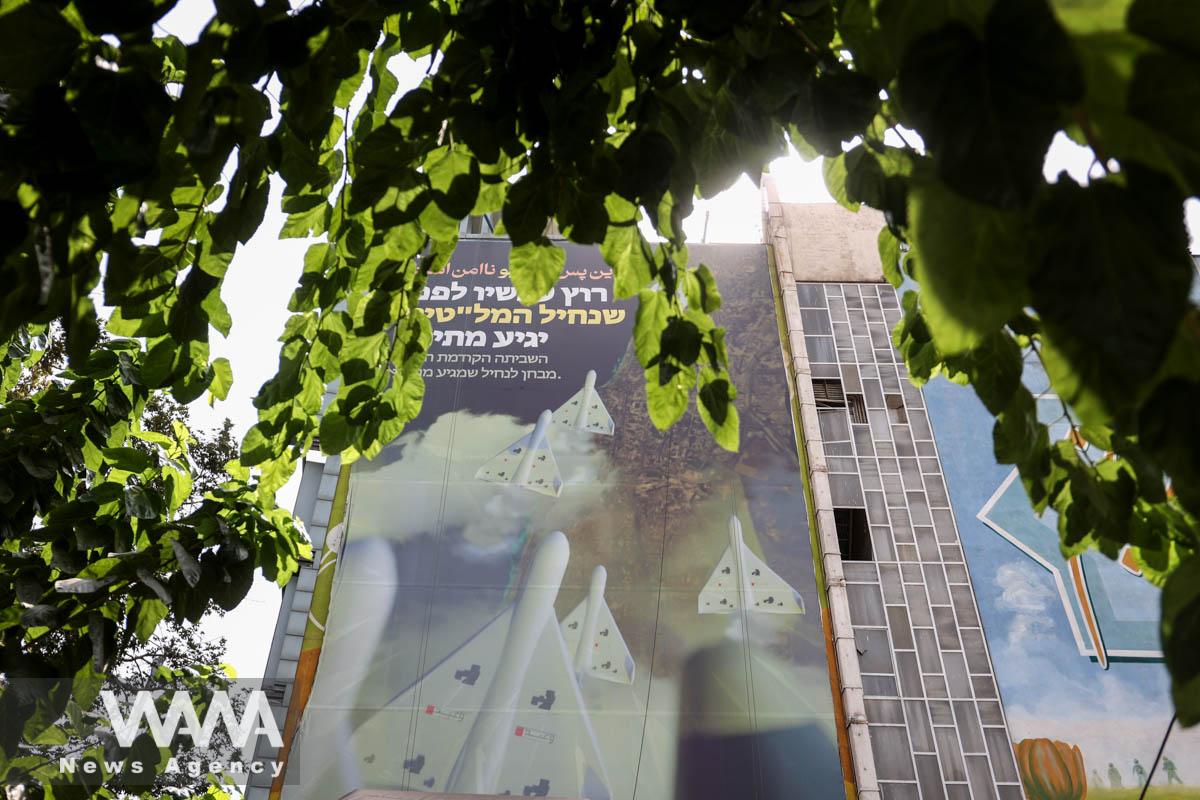Tehran in Shock: The Assassination of Haniyeh and Its Security and Political Implications
WANA (July 31) – It is said that at 2 a.m. last night, Iranian time, just as the city was asleep, an assassination took place in Tehran.
Soon, the Iranian Revolutionary Guard Corps (IRGC), responsible for the protection of key figures, announced in the media that Ismail Haniyeh, the head of the political bureau of Hamas, who had come to Iran for the inauguration ceremony of Masoud Pezeshkian, was assassinated along with one of his bodyguards as their residence in Tehran was hit.
The rapid dissemination of the news released by the IRGC’s public relations early in the morning raises many questions. The IRGC generally waits until they have precise information and details before releasing news. Their usual practice is to gather complete information and then release it to the media with caution.
So far, none of the two official statements issued by the IRGC have detailed the assassination, and the media still lacks information about the specifics of the attack. No one knows whether the attack was carried out with missiles, drones, or by individuals.
Given the presence of 80 groups of high-ranking officials from various countries who came to Iran for Masoud Pezeshkian’s inauguration, it was expected that Tehran’s security would be at a higher level.

Iran’s President Inauguration with Presence of 86 countries’ representatives
WANA (July 30 ) – Following the endorsement of the presidential mandate by the Supreme Leader, the newly elected President is required to take the oath of office in the Islamic Consultative Assembly. According to Article 121 of the Constitution, this ceremony will take place in the presence of the Holy Quran, members of Parliament, […]
However, the news of the assassination of one of Hamas’s most important leaders, who has always been a target for Mossad, has shocked everyone.
Speculations revolve around these points and still do:
– Haniyeh was assassinated in Tehran, not Qatar, to send a specific message to Iranian officials.
– The assassination could have been orchestrated by Iranians themselves to provide a stronger pretext for a full-scale war with Israel.
– Mossad aimed to create a rift between Hamas and Iran with this assassination.
– Israel intended to showcase its security penetration into Iran to Tehran’s military and security officials.
– Another goal was to demonstrate the capability of assassinating Iranian officials.

An Iranian man holds a picture of the Palestinian group Hamas’ top leader Ismail Haniyeh, following the assassination of him, in Tehran, Iran July 31, 2024. Majid Asgaripour/WANA (West Asia News Agency)
The two official statements issued by the IRGC contained no specific information. The first statement simply announced the assassination:
“Early this morning (Wednesday), the residence of Dr. Ismail Haniyeh, the head of the political bureau of Hamas, in Tehran was hit. As a result, he and one of his guards were martyred.”
Hours later, the second statement from the IRGC‘s public relations was released, stating:
“Undoubtedly, this heinous act by the Zionist regime will be met with a severe and painful response from the powerful and grand resistance front, especially from Islamic Iran.”
Nasser Kanaani, the Foreign Ministry spokesman, was the first to react officially, saying that Haniyeh’s martyrdom would strengthen the relationship between Iran and the resistance front, and promised that the dimensions of this incident would be investigated by relevant authorities.
It appears that the new Iranian president is starting his term with a major issue.
During his inauguration, he condemned Israel’s crimes in Gaza, and his fiery anti-Zionist remarks were welcomed by parliament members and officials, reaching a peak with chants of “Death to Israel” and “Death to America.” He probably did not anticipate Israel’s next move the day after.
President Pezeshkian, who is currently without ministers and a cabinet, reacted to Haniyeh’s assassination by stating, “The Islamic Republic of Iran will defend its territorial integrity, honor, and dignity, and the terrorist occupiers will regret their cowardly action.”
At the inauguration ceremony, Pezeshkian warmly embraced Ismail Haniyeh, and both raised their hands in a victory sign towards the reporters. “Yesterday, I raised his victorious hand, and today I have to carry him on my shoulders,” the president-elect said.

Iran’s new President, Masoud Pezeshkian attends his swearing-in ceremony at the parliament in Tehran, Iran, July 30, 2024. Majid Asgaripour/WANA (West Asia News Agency)
Iranian Supreme Leader Ayatollah Khamenei also issued a condolence message, condemning the act and attributing it to the Zionist regime.
“The criminal and terrorist Zionist regime has paved the way for severe punishment for itself with this action, and avenging his blood, which was shed in the territory of the Islamic Republic of Iran, is our duty.”
Like other officials, the Supreme Leader did not specify the nature and extent of Iran’s response. No one knows what plans the Iranian leader has for Tel Aviv.
Will there be a harsher response than the “True Promise” operation? Will the Iranian leader use the entire capacity of the “resistance front” to end the Israeli regime sooner than the 25-year timeframe he had predicted?

Iran’s Supreme Leader Condolences for Haniyeh’s Assassination
WANA (July 31) – After the martyrdom of Ismail Haniyeh, the head of Hamas’ political bureau, Ayatollah Khamenei, the Supreme Leader of the Islamic Revolution, issued a message of condolence. He expressed sympathy with the Islamic Ummah, the resistance front, and the proud Palestinian nation. The message emphasized that the criminal and terrorist Zionist […]
General Hossein Alaei, former chief of the Joint Staff of the IRGC and a reformist military figure supporting the new president, claimed that “the U.S. certainly had close operational and intelligence cooperation with the Zionist regime in Haniyeh’s assassination.”
Alaei stated that the Zionist regime wants to show Palestinian groups that “there is no safe place for them anywhere in the world.”
He also suggested that the assassination sends a message to Pezeshkian’s government that no changes will be allowed in Iran to enable its people to live comfortably and establish good relations with other countries.
The retired Iranian general believes Mossad’s agenda is to weaken the reformist government to prevent them from improving relations with the West and improving living conditions.

An Iranian woman holds a poster of Palestinian group Hamas’ top leader Ismail Haniyeh, during an anti-Israel gathering following the killing of him, amid the ongoing conflict between Israel and Hamas, in Tehran, Iran July 31, 2024. Majid Asgaripour/WANA (West Asia News Agency)
Israeli officials have not officially claimed responsibility for the attack. Netanyahu’s cabinet stated they would not comment on Haniyeh’s assassination, and the latest reports from Israeli media indicate that Tel Aviv is not taking responsibility for the assassination.
An Israeli military official told RIA Novosti that “Tel Aviv is not responsible for the assassination of Hamas’s political bureau chief.”
However, in social media, Israeli rhetoric was different. They proudly praised their government’s action, stating that Iran, Hamas, and Lebanon deserve harsher punishments. “We hope Iran has learned its lesson, or it will pay a heavier price!” wrote Haaretz.
U.S. Secretary of State Antony Blinken said the Biden administration had no prior warning about the attack on Haniyeh and played no role in it.
He added that the current priority is reaching a ceasefire in Gaza, which benefits the hostages. Tehran does not believe Washington was unaware of Israel’s action and suspects the U.S. was another player in this assassination.

An anti-Israel billboard is displayed on a street in Tehran, Iran July 31, 2024. Majid Asgaripour/WANA (West Asia News Agency)
Iran has promised its people a severe retaliation against Israel. Direct military attacks, missile strikes on Tel Aviv, a large-scale assault using proxy groups and the resistance front, crippling cyberattacks against Israel, and assassinations of Israeli officials outside Israel are some of the potential forms of revenge.
It seems likely that Iran, which responded to the assassination of its commanders in Syria with hundreds of drones and missiles, will seek to deliver a significant blow to Israel in retaliation for Ismail Haniyeh’s assassination.














